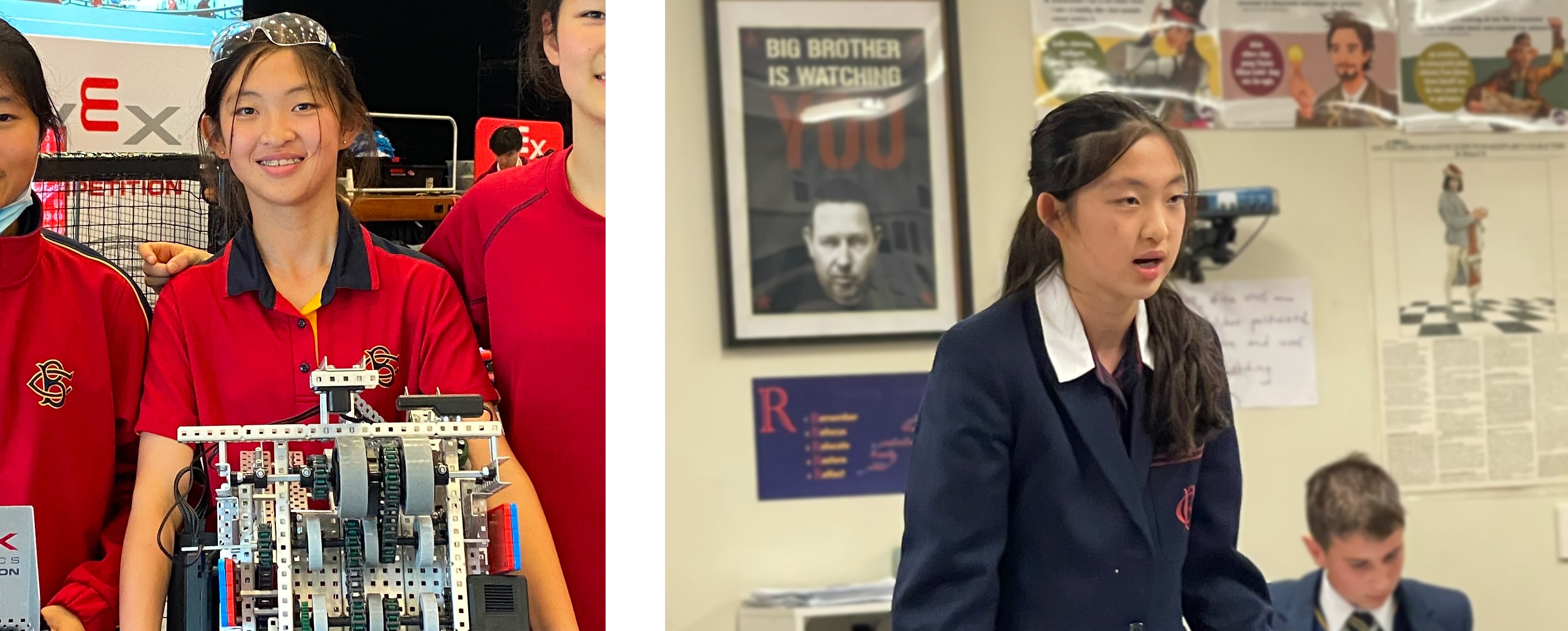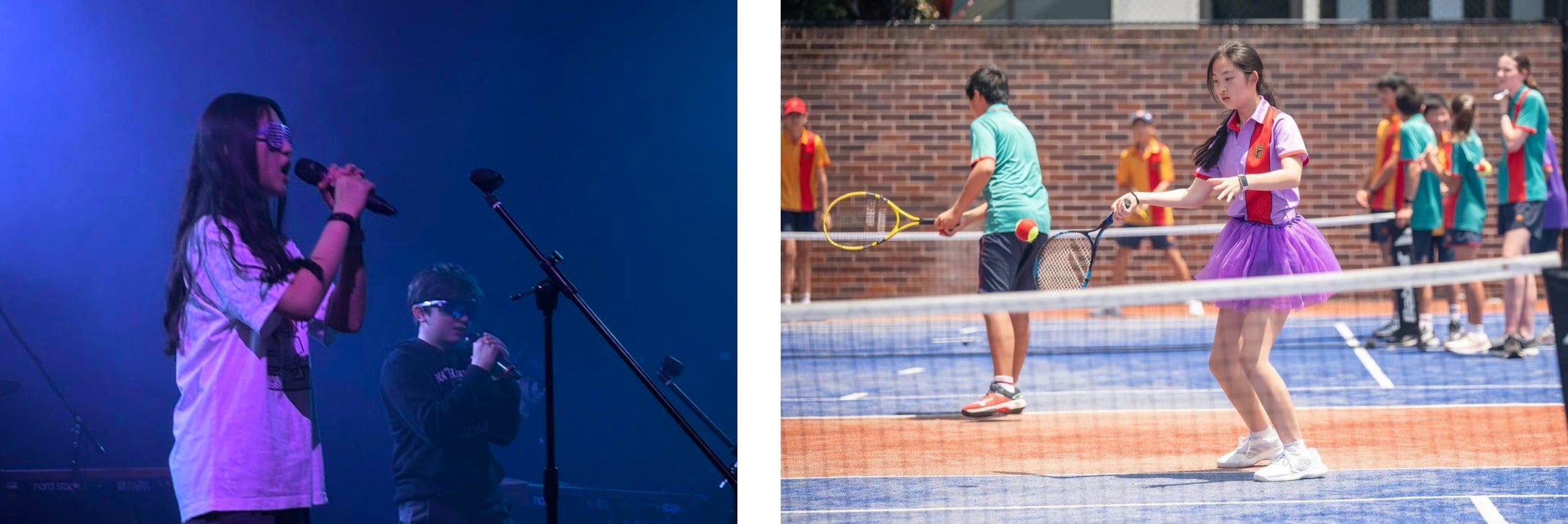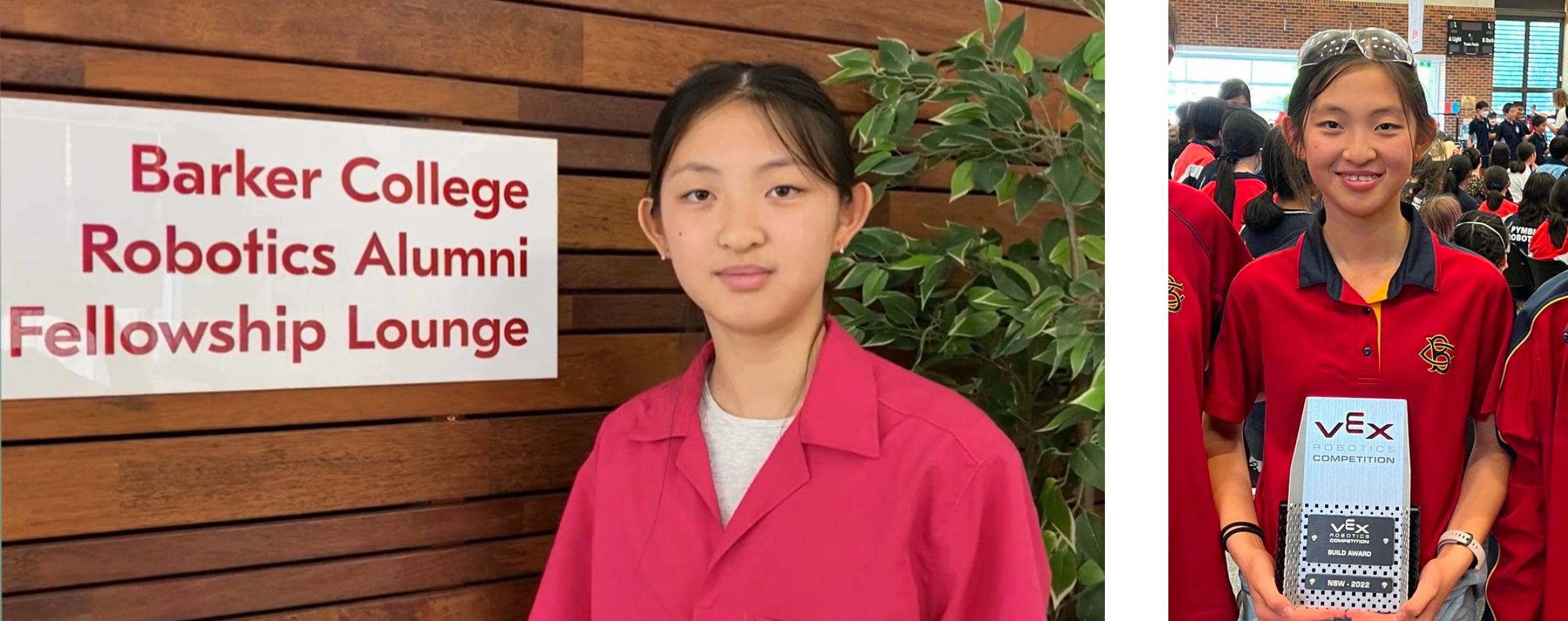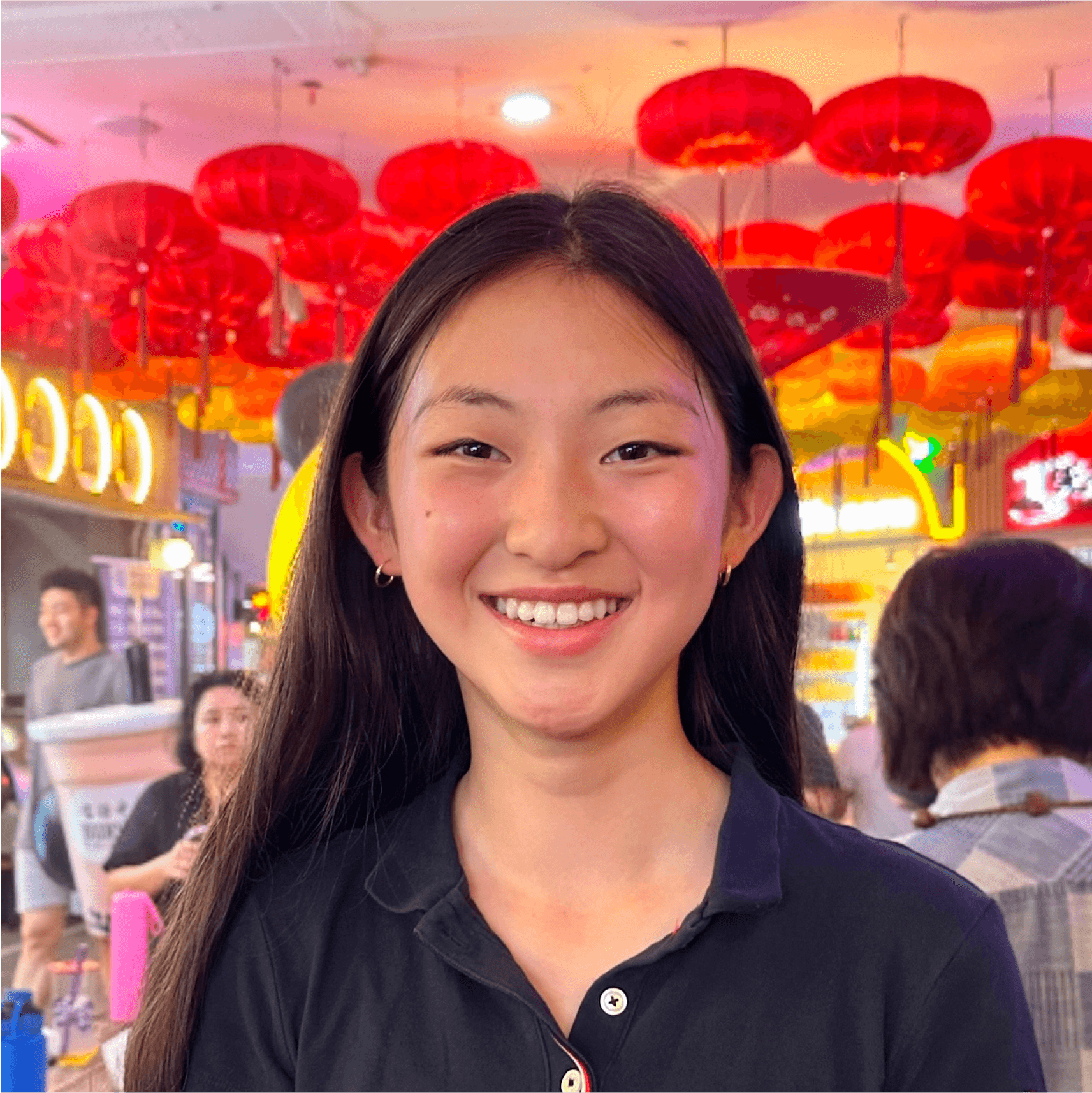Jiaqi Wan
The fellowship is an exciting and innovative summer program which empowers high school students in STEM to dive deeper and explore more. Throughout the program, I've learnt invaluable skills in time management, networking and product design which carry over to my individual pursuits and into the future. The unique, fully-online format of the fellowship has allowed me to form relationships with students across the globe who have similar aspirations and interests as me- helping me to build a network of similarly motivated and passionate individuals who are all incredibly inspiring. Above all, the mentors at the program were relatable, helpful and welcoming, leaving me with useful tips for the rest of my schooling journey. The fellowship has provided me with overwhelming resources and support- something I could never be more grateful for!
Jiaqi Wan is a high school student from Australia passionate about technology and engineering. Her love for robotics drives much of her time outside of school. As the programmer of her robotics team, Jiaqi has helped her team qualify for the VEX Australian Nationals two years in a row and the World Championships the following year. This year, Jiaqi is excited to begin competing in FIRST Tech and FIRST Robotics.
In addition to robotics, Jiaqi is an avid singer and a proud member of the Australian Girls Choir, having performed for a television special dedicated to singer John Farnham. When not immersed in robotics or music, Jiaqi enjoys exploring emerging technologies and innovations, such as lab-grown meat. Read on to learn more about Jiaqi’s robotics journey, her love of singing, and aspirations for the future!
Meet Jiaqi!
How did you initially become interested in STEM?
From a very young age, I was always curious about how things worked. I liked asking a lot of questions and trying to understand the world around me. In school, math caught my attention because of its order and structure. I remember when I first learned the order of operations, and I thought it was really cool.
COVID also had a big impact. With everyone at home, I spent a lot of time learning about technology, particularly coding in Python, and moving beyond block coding. This led me to my current work in robotics coding. While I’ve always been STEM-oriented, the past few years have really helped me focus and dive deeper into it.
Can you tell us more about which STEM subjects you’re interested in?
At school, I’m currently studying computing technology, which includes information processing, data, and coding in various languages. I really enjoy it, especially website engineering, such as front-end development and user interface design.
I’m also interested in science, particularly biology and chemistry. While we haven’t tackled more advanced topics yet, I enjoy learning about subjects like chemical bonding and the basics of biology. Right now, though, my main focus is on technology and engineering, especially robotics, which has become a big passion of mine.
What extracurriculars are you involved in?
My main extracurricular is definitely robotics. I’m currently involved with both FIRST Tech Robotics and FIRST Robotics. I’m the programmer on my team, but I also take on organizer roles, like managing the engineering portfolio, documenting things, and doing media-related tasks like advertising and video editing, which I enjoy. Previously, I did VEX Robotics. We were able to qualify for the Australian Nationals two years in a row, and the World Championships the following year, which was really exciting!
Besides robotics, I’m also involved in debate, which enhances my logic and public speaking skills—both important for STEM! Debating has broadened my world view and understanding of societal issues as well as bringing me to meet many people. I’m very grateful for debating opportunities I have been given. Recently, I also have gotten into volleyball, which has been fun.

What do you enjoy doing outside of school?
Outside of school, I really enjoy singing and being involved in the Australian Girls Choir. We've had some exciting experiences, like performing at Christmas events and even being on TV for a special with a singer named John Farnham. I love learning new songs and listening to musicals. Recently, I saw Hamilton, which was incredible.
I also enjoy cooking and meeting new people, since I’m pretty outgoing. A lot of my time outside of school is dedicated to my extracurriculars, like watching debate-related videos on YouTube. Otherwise, I like to spend my time keeping up with the pro tennis tour or reading up on the latest news.

Summer Experience
What was your favorite part of the fellowship?
My favorite parts of the fellowship were the use of technology and the connections it facilitated. The ability to meet people globally, especially through platforms like Zoom, made it possible to form meaningful relationships that I might not have had the chance to otherwise. I’ve made friends from different countries who I still stay in touch with today, and I think that’s a unique and valuable aspect of the fellowship. I still keep in touch with a student from Greece, which is really cool, since I don’t think I would’ve met her otherwise.
Also, I really liked how many of the mentors were close in age to me. This made it easier to relate to them and engage in more open conversations, and I felt like the advice they gave was a lot more relatable and relevant to my life.
What was your favorite Fireside Chat from the summer?
My favorite Fireside Chat was the one on time management by Alexa. At the time, I wasn’t great at managing my time, but her strategies really helped me, especially with exams. She introduced me to the Pomodoro method and the idea of planning ahead, which made a huge difference. I also learned about the Eisenhower Matrix. It’s a grid that helps prioritize tasks based on urgency and importance, and it’s been super useful for me. For instance, if something is quick and important, I tackle it immediately to avoid letting tasks pile up.
What were some of the lessons or skills you learned over the summer?
One of the most valuable lessons I learned was not to be afraid to reach out. The fellowship emphasized the importance of cold emailing and following up, which really helped me overcome my fear of rejection. Even if you don’t get a response, it’s worth trying—you won’t regret it.
Another skill I learned was how to use Figma, the online design software. Before, I mostly used Canva, but Figma has been a game changer! I’ve used it to create posters, mock-ups for websites, and visual timelines for projects. It offers much more customization compared to Canva, which is more template-based. I’m still getting the hang of it, but it’s been really useful for creative projects.
What advice would you give to future participants of the fellowship?
My advice would be to fully utilize all the resources available. Don’t skip sessions or avoid watching replays just because you’re busy. I found it really helpful to go back and watch replays, like the one on Figma, that I missed. The fireside chats and events are incredibly valuable, so take advantage of them.
Also, don’t hesitate to ask questions. The mentors are there to help, and they’re very approachable. They’re willing to offer advice and share their experiences, which is something I’ve found really valuable. It’s cool to know people at different stages of life with different aspirations. Networking like this is really valuable.
Future Aspirations
What are your goals over the next five to ten years?
On the STEM side, I want to continue learning and exploring areas like coding, science, and math. I hope to get involved in something research-related or even innovate something impactful. One area I’m particularly interested in is lab-grown meat, which I find fascinating. I’d love to work on something that’s hands-on and focused on problem-solving. I’d also love to work on something related to AI because it has so much potential for the future.
Outside of STEM, I also want to get more involved in volunteering. My school recently opened a sub-school for refugees coming to Australia, and I’m looking into ways I can contribute and help underprivileged people in our community.
How did the fellowship influence your career aspirations?
Instead of narrowing down my list, I think it made my decision harder! I learned about so many career paths that I didn’t even know existed. I’m not at the stage yet where I’m seriously looking into specific careers, but the fellowship showed me how diverse STEM fields are.
For example, I learned so many different applications of coding and computer science. I was especially fascinated by how coding is applied in medicine, like analyzing medical data. One talk that really stood out was Jiwoo’s on CRISPR gene editing. Her unexpected journey into the field through a summer program showed me that keeping an open mind can lead to surprising opportunities. Overall, the fellowship helped me realize there’s so much out there to explore.
What have you been up to since the fellowship?
Right now, my main focus is robotics. After exams, I immediately dove into coding, planning, and working on the robot. We just qualified to the Australian Nationals for FTC, and I’m currently working on coding autonomous routines and maximising our chances of qualifying to FTC World Championships through awards! Robotics is very time-consuming, and there’s a lot of prototyping and testing involved, so it’s not something you can just breeze through. It’s all worth it though— I’m really looking forward to seeing how the season goes!

The Summit STEM Fellowship (SSF) is a virtual summer fellowship empowering the next generation of leaders in STEM. With alumni from over 30 countries, the fellowship has formed a vibrant, diverse network of future STEM leaders. To learn more, please visit the Fellowship Overview page. You can also find student spotlights on the Summit STEM Fellowship Newsletter. Subscribe to stay up to date with program announcements and new student spotlights!
Applications for the 2025 Summer Fellowship are now open. To apply, students must fill out a 2025 Summit STEM Fellowship Application. Admissions are rolling, and students are encouraged to apply as early as possible.

